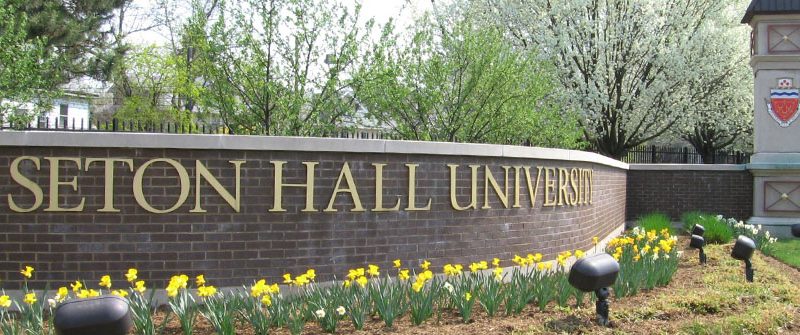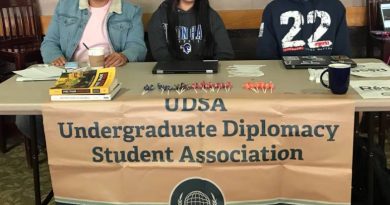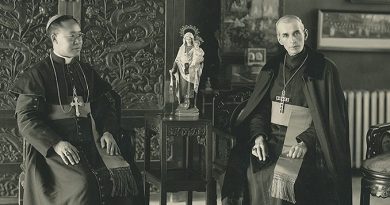Diplomacy Students Voice Concerns, Suggestions at UDSA Forum
Hamzah Khan
Associate Editor
The Undergraduate Diplomacy Student Association of Seton Hall University’s School of Diplomacy and International Relations held an open forum on March 24 for students to discuss their concerns about the School and the return to campus following the COVID-19 shutdown.
UDSA President Patrick Condon said the purpose of the meeting was to “generally talk about the student experience and how students in the School of Diplomacy have been feeling throughout the year.” The panel consisted of rising seniors UDSA President Patrick Condon and West Indian Student Association President Elyssa Curet, and Ahmad Choudhary, a 2nd-year graduate student and president of the International Law Society.
The first part of the forum focused on students’ experiences this year and any concerns or issues being experienced. Many of the younger students discussed how COVID had impacted their experiences, with one student saying that “we’ve kind of forgotten how to be social.”
One of the main concerns was regarding the language requirements in the School of Diplomacy. Some students expressed that they felt pressured to take multiple languages, which they said makes it harder to become fluent in one. The language requirements essentially make students pursue a minor in a language rather than another subject they would be otherwise be interested in, the students said. Condon said, “I came to the point where I realized, do I want to be studying languages half of the day essentially because I needed to put so much more effort in afterwards.” Choudhary remarked that “it’s important to immerse yourself in a language to become fluent in a way you can’t do in a classroom here.”
The main recommendation from the panelists to improve the school was that there should be greater focus on study abroad programs to benefit students’ language development, rather than taking advanced language courses at Seton Hall. Many students have to find their own study abroad programs through third parties because of the lack of offerings at the School of Diplomacy. One student said, “I’m currently in the process of applying to a third-party study abroad program and it’s a mess.”
The panelists also addressed difficulties in finding internships and said that the School of Diplomacy focuses too much on non-government organizations, which they said can be extremely competitive and lead to other students pursuing career paths not necessarily relating to international relations. Curet said that “the faculty are not always great at humanizing the experience” because the students and faculty at the School of Diplomacy are so accomplished. Elyssa also discussed how difficult it was for students of color to find opportunities at the School of Diplomacy due to “feelings of isolation” at a majority-white school.
Students also expressed the desire to engage in more group research projects, similar to the group projects they had the opportunity to collaborate on in Dr. Nabeela Alam and Dr. Margarita Balmaceda’s classes. In response, one student mentioned the DiploLab, which is a fairly recent collaborative research space for undergraduate students to assist professors with original research, as an example of how to foster a more collegial spirit among the undergraduate diplomacy student body.
Panelists also mentioned how the School is facing an admissions crisis, with many students dropping out and fewer students enrolling each year. One such reason discussed by students was the lack of outreach to prospective students in the South or Midwest and the school’s focus on recruiting students primarily from the Tri-State Area and the East and West coasts. Anna Thibodeau, a student from Nebraska said, “the Diplo School doesn’t do a good enough job reaching out to people outside of New Jersey because the rest of the school doesn’t really have to reach out to people outside New Jersey.”
Students also discussed the recent Dean search and expressed some apprehensions about the result. Some students said that they felt there was a disconnect between Dean Smith and the student body. Patrick said, “I don’t think there is a real communicative relationship between the student body and the dean.” Elyssa said the School of Diplomacy has not always provided the best resources for black students, some of whom feel “outnumbered to the point where they don’t even leave their dorms.”
The overarching theme of the forum was students expressing their desire to be heard by the Dean and the administrators at the School of Diplomacy. The panelists suggested that administrators take further steps to improve transparency and cooperation with the student body by hosting more events and social media outreach from the School of Diplomacy.



